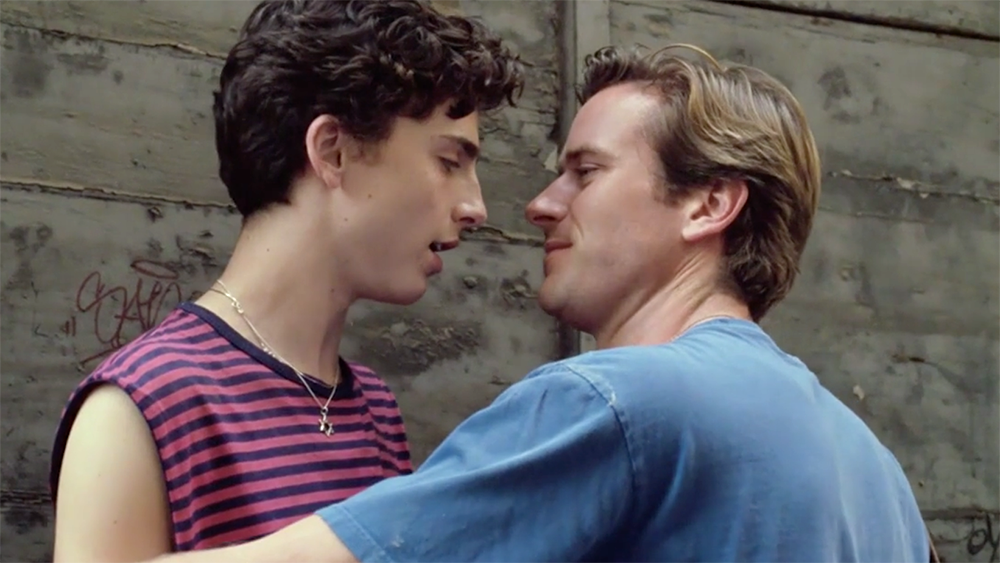Hollywood hasn’t always been this way. Ironically one could argue that the early days of cinema was far better for presentation than what we get nowadays. While admittedly these gay characters were often played with high levels of camp (and why the terms ‘pansy’ and ‘sissy’ became associated with male homosexuality), studios would often push many social boundaries in an effort to create shock value and get audiences to the theatre during the Great Depression. Films like Charlie Chaplin’s A Woman and Glen or Glenda featured gendered role reversals. One of the earliest films, 1895’s The Dickson Experimental Sound Film even featured two men dancing intimately.
However, the Lavender Scare and Joseph McCarthy would become what has ultimately defined the narrative in Hollywood regarding the LGBT+ community to this day. Being gay was illegal in the 1950s and the Lavender Scare (along with the Red Scare) was part of a scheme to root out communists in government and entertainment. LGBT+ people were viewed as security risks and communist sympathisers which led to a Hollywood blacklist that excluded anyone from Hollywood deemed to be a communist ally. The Motion Picture Production Code only allowed sexual transgression if it was portrayed in a negative light meaning that LGBT+ representation later became subversive and vilified.
The overall narrative in Hollywood has long been one that LGBT+ people are to be feared.
Increasingly gay men and women were depicted as psychopathic, sadistic, evil and nefarious. There is Mrs. Danvers in Alfred Hitchcock’s Rebecca. 1980’s Cruising portrays gay men as serial killers while the cannibals Buffalo Bill and Hannibal Lecter in Silence of the Lambs are both portrayed as sexually transgressive. Bond villains are often camp and it’s no surprise in this context that one of Disney’s most iconic villains, Ursula, is inspired by the drag queen ‘Divine’. While films such as Thelma and Louise and The Rocky Horror Picture Show have given positive portrayals of LGBT+ people, the overall narrative in Hollywood has long been one that LGBT+ people are to be feared.

What this has done is create an environment where there is a culture of silence around LGBT+ people in Hollywood, for all its purported liberalism. The actors who do come out are few and far between for studios are often worried that an LGBT+ actor is less marketable to audiences. This lack of conversation on LGBT+ issues allows people like Kevin Spacey and Brian Singer to continue their abuse without punishment. The media, rightfully so, have shunned the old-school scaremongering tactics about certain celebrities’ sexuality but what this does is silence LGBT+ victims of abuse. In her article for Buzzfeed, Shannon Keating talks about how Advocate Magazine redacted Kevin Spacey’s name when Anthony Rapp made an accusation of sexual harassment against him 16 years before it became public. Brian Singer who has directed nearly every X-Men movie among others has been accused of sexual assault and rape against minors several times, the latest being a lawsuit filed by Cezar Sanchez-Gazman who claimed that the director raped him in 2003 when he was 17 years-old. However, it has only been in the last year that both men have faced repercussions, like Harvey Weinstein, for their years of abuse.
We need to open up a discussion about LGBT+ abuse in Hollywood, not just sweep it into the closet and hope it goes away.
Like with the systemic abuse and harassment that women in Hollywood often face, LGBT+ people face it too both in front and behind the camera. Films and TV shows, even ones with positive portrayals of LGBT+ people, often end in death as resolution for such transgressive behaviour. Poussey in ‘Orange is the New Black, Thelma and Louise in their titular film, Lexa in The 100. Being the villain in the first place makes it easier to justify the ends of these transgressive characters too. It’s so common that people have created lists, such as this one detailing every dead LGBT+ female character on TV and why. Behind the camera, Ellen Page has talked about how her director, Brett Ratner joked a crew member ‘should f*ck her to make her realise she’s gay’ – something that Page felt ‘violated’ her, especially as she ‘was a young adult who had not yet come out’ to herself.
This narrative needs to change, something that Hollywood is finally starting to do with films like Call Me By Your Name and Blue Is The Warmest Colour. On TV, we have Laverne Cox, the first transgender actress to get nominated for an Emmy and have a series regular role. We also have gay relationships that challenge stereotypes and clichés in How To Get Away With Murder and Star Trek: Discovery. However, LGBT+ representation is far from perfect; for every Moonlight and The Danish Girl, there is a Stonewall. We need to open up a discussion about LGBT+ abuse in Hollywood, not just sweep it into the closet and hope it goes away.
(Image courtesy of Variety)

